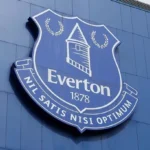
The 2022 World Cup will start in a month and a half in Qatar and the emirate has come under a lot of criticism, particularly on its management of human rights and the environment. What push its sponsors to question themselves, even to reorganize a little. But given the colossal economic stakes, protests should be fairly minimal. No massive boycott is envisaged.
Is it appropriate for a brand to display at the Mondial-2022 ? Repeated controversies put off sponsors and broadcasters, but most will honor their expensive contracts in Qatar, even if it means opting for a “critical accompaniment” of the planetary meeting. Showcase bringing together billions of viewers (1.12 billion for the 2018 final alone, according to Fifa), the World Cup attracts every four years brands in search of a global audience, whether they are partners of the competition or national teams.
Except that the 2022 edition in Qatar has been surrounded by controversy since the organization was awarded to the small Gulf emirate in 2010, between environmental footprint, place of women and LGBT + minorities, rights of workers responsible for building infrastructure. ..
“The objective of brands, by sponsoring, is certainly not to be associated with things perceived as negative or problematic”, notes for AFP Magali Tézenas du Montcel, general manager of Sporsora, an association bringing together actors of the sports economy in France (advertisers, broadcasters, etc.). For her, “brands can no longer save themselves from being engaged on these subjects”.
Recently, several human rights organizations called on the sponsors of the World Cup to support their campaign for compensation for workers who worked on the construction sites of the competition, deploring abuses and unpaid wages.
A massive boycott deemed illusory
However, it is difficult to rely on these expensive long-term contracts and on communication campaigns which began several months ago around the World Cup, reminds AFP Gary Tribou, professor of sports marketing at the University of Strasbourg. , which makes a last-minute boycott illusory.
“What can be envisaged is that the activation during the event be revised (downward), in terms of its tone”, notes this researcher. “A media boycott (…) would not be effective”, confirms the German operator Telekom, which is both sponsor of the national selection and broadcaster of the World Cup, via its subsidiary Magenta TV. The company prefers to bet on a “critical support of the tournament”, with for example the broadcasting of reports on “
Similarly, US giant Coca-Cola issued a lengthy statement in May defending its presence in Qatar, saying it was pressuring Fifa to contribute to “meaningful reforms to improve the rights of migrant workers”. “Brands have a real role to play with the holders of sports rights to make them evolve”, underlines Magali Tézenas du Montcel, for example by ensuring the criterion of human rights when awarding competitions. And if the risk of “bad buzz” (uncontrollable bad publicity) is always possible during the tournament, experience often proves that supporters have a selective memory.
A demand comparable to the 2018 World Cup
“The scandal evaporates quickly in people’s minds,” notes Gary Tribou, who however points to a risk: that of disappointing audiences for the competition in the event of a massive boycott by supporters-consumers. But the broadcasters interviewed by AFP ensure that the advertising market around the World Cup remains robust: “We have so far recorded strong demand, comparable to that of the 2018 World Cup and at a similar price level”, notes the German channel ARD, while its British counterpart ITV speaks of “strong demand”.
Source: Alexandre Jaquin with AFP







